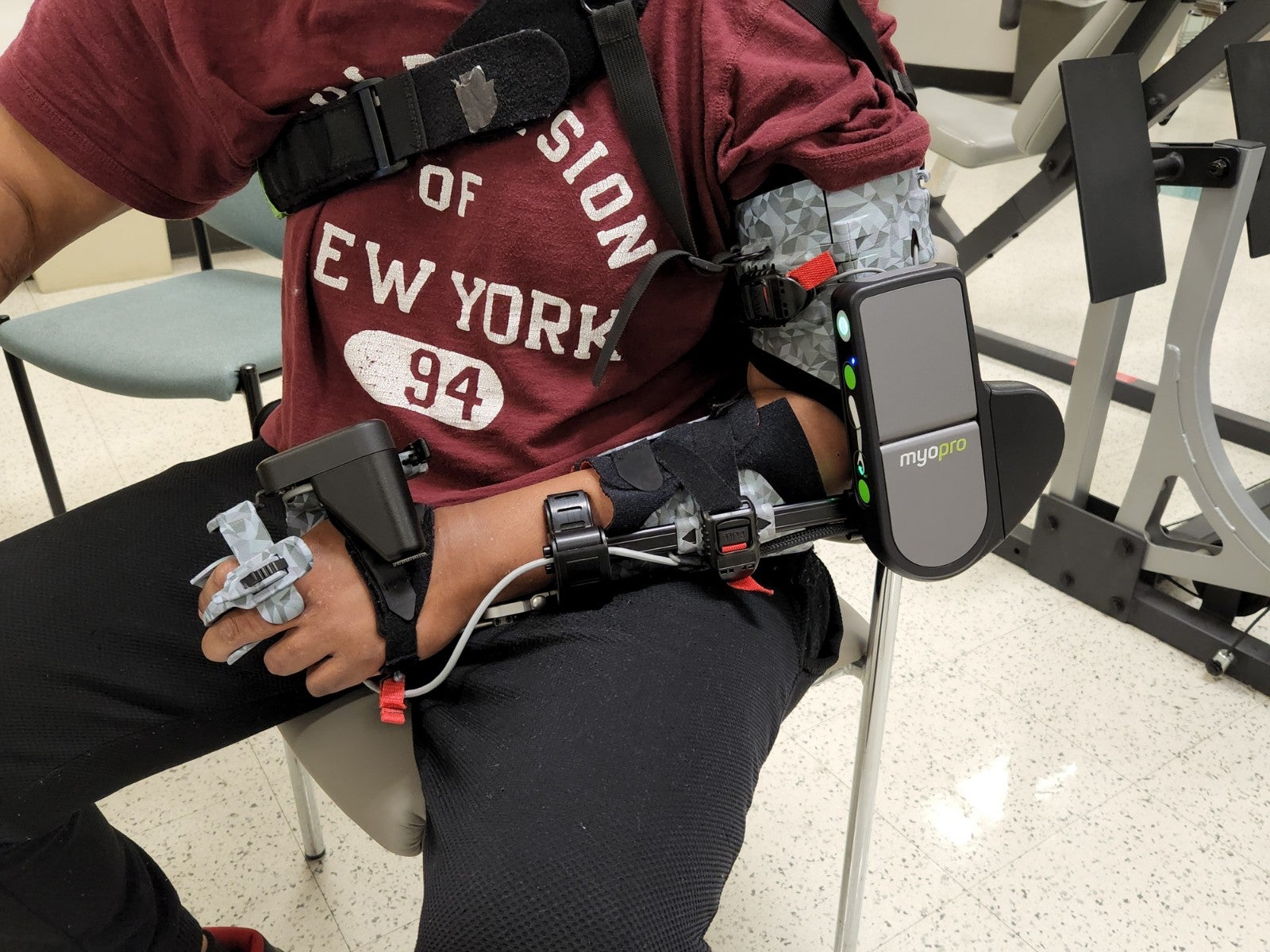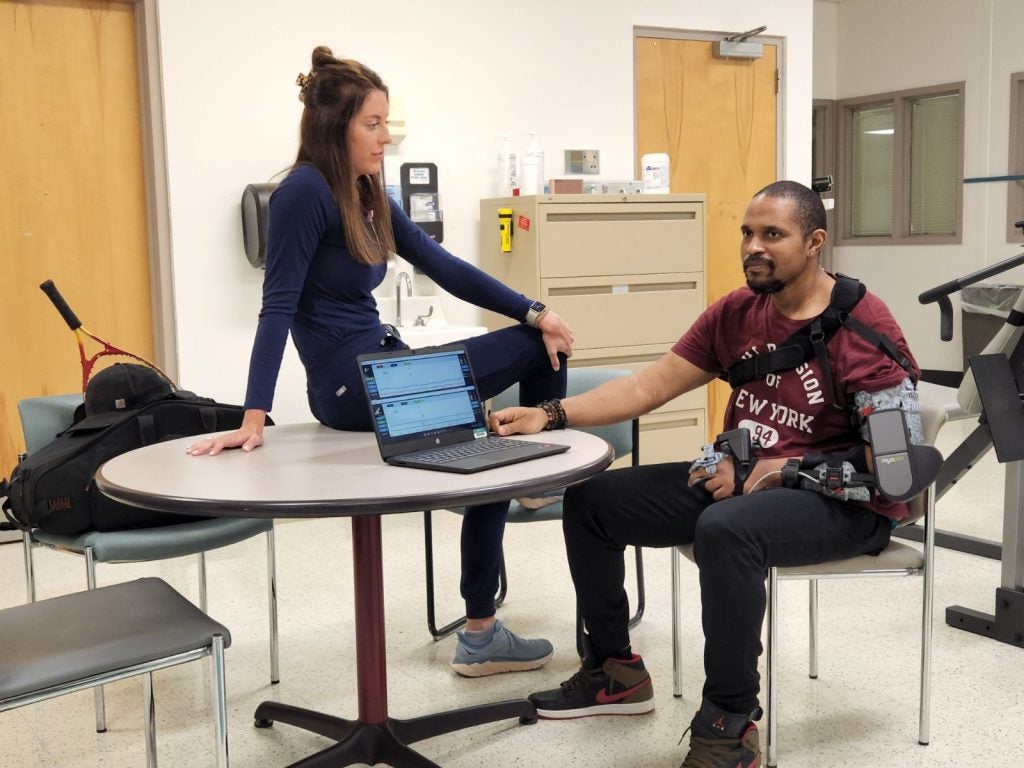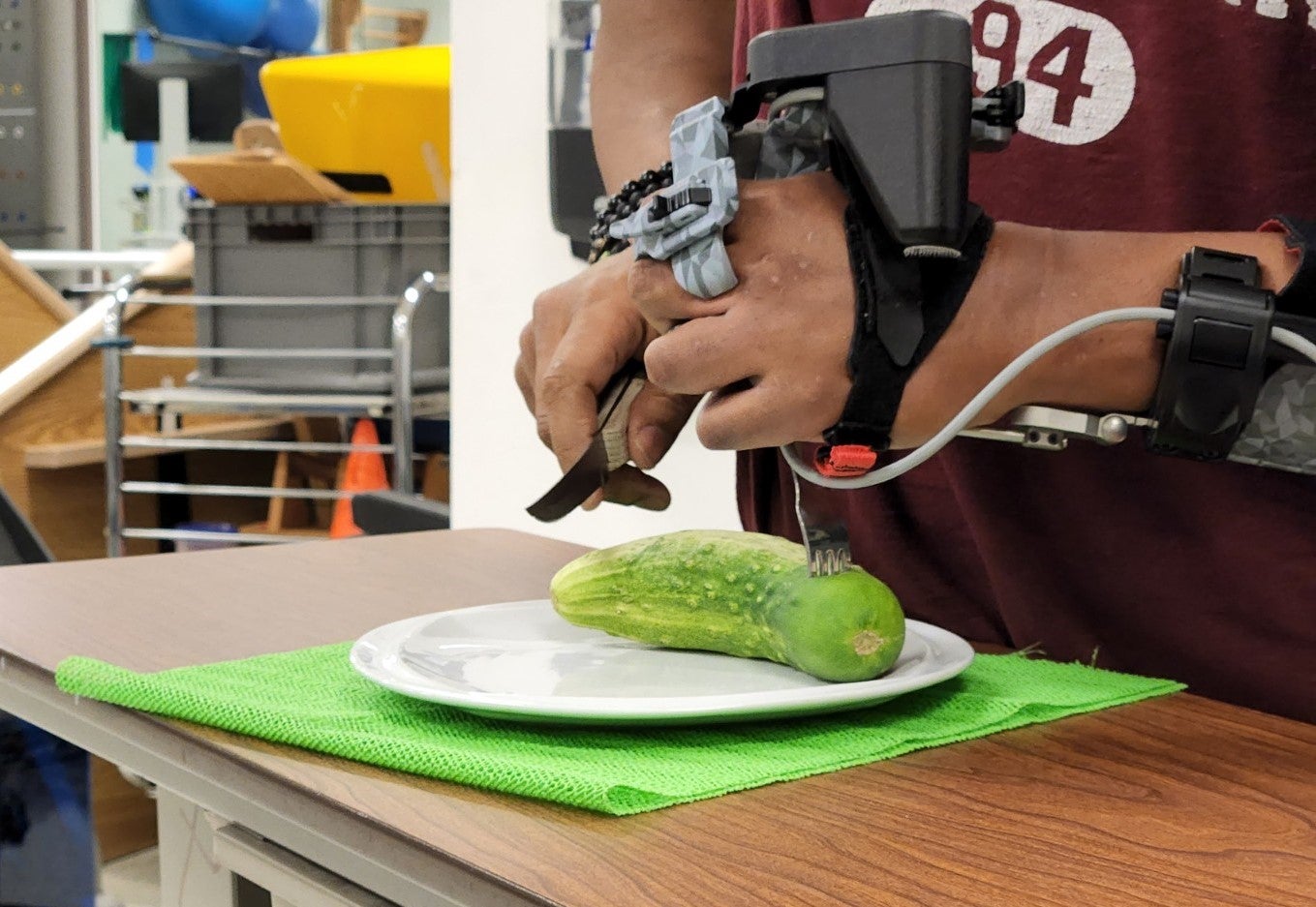At age 32, Michael Johnson had a good life. Family he loved, a fulfilling career as a chef and gym workouts that challenged him.
One morning in 2016, he woke with a headache. It persisted, but he still went to work.
“But when I came home, I just dropped. My wife knew something was wrong,” he said. “She seen me drop to the floor in a bathroom. And she said, ‘You’re having a stroke,’ so she called an ambulance. And from there, I’ve been fighting for my independence in my life.”
Enter modern technology from a company called Myomo, a nod to “my own motion.” The Massachusetts-based company produces a lightweight, non-invasive powered arm brace. It can restore function to a patient suffering from a spinal cord injury, nerve injury, amyotrophic lateral sclerosis, multiple sclerosis or stroke.

Johnson wears a MyoPro device on his left arm.
“I had severe impairments on my left arm due to a stroke. This device actually takes signals from our arm, and it boosts the signals to breach the to bridge the gap between the disconnections from my brain to my muscles. So, it amplifies it. I’m actually doing it, but the signals aren’t strong enough,” he said.
Johnson had contacted the company to ask if the brace was right for him. From there, Myomo contacted Piedmont Augusta to offer teach occupational therapists with the hospital’s rehabilitation services team.
By March, Johnson, Myomo and the rehabilitation team were ready to work.
“We had three therapists undergo like a virtual training,” said occupational therapist Bailey Parker. “And then like Mike said, probably a couple weeks later, he came in, and we went through an initial evaluation just to try and see what he was able to do on his own with his own arm, without use of the prosthetic, and then assist with prosthetic kind of what steps we could take to regain his independence.”
In addition to working with the rehabilitation team, Johnson had programs to work on at home.
Parker credited Johnson’s commitment to collaborating with the team and doing the programs at home with how far he has come in regaining use of his left arm.
“He has gained so much range of motion in his arm without I’ll use the prosthetic which has been wonderful for carry over at home in terms of he can brush his teeth better without the MyoPro than with it. So, he has done wonderful. He can get back in the kitchen, he can cook, he’s helping his daughter a lot with playing,” she said.

“It boosted my life exponentially and also give me hope that maybe one day, with continued use, I’ll be able to get back to doing some of the things that I couldn’t do before this device. I was executive chef for many years. I may not be able to do that, but maybe I can teach people how to cook,” Johnson said.
Parker said members of Piedmont Augusta’s rehabilitation services are they only ones certified in this region to work with patients and the MyoPro device. She said other stroke patients interested in learning if they may be eligible can contact the hospital and they will set up a consultation with the company.
Johnson encouraged anyone with mobility issues with an arm to give the MyoPro a try.
“Some of them have given up. They don’t feel like they can get their arm back, but this is proof,” he said. “I had my stroke six years ago and I made more improvement on my arm in a couple of months than I had six years. There is hope. Don’t give up.”
Dana Lynn McIntyre is a general assignment reporter for The Augusta Press. Reach her at dana@theaugustapress.com










